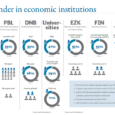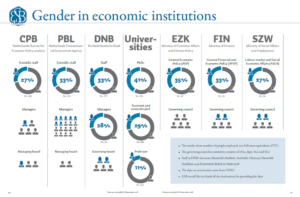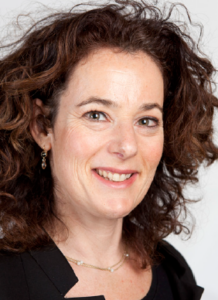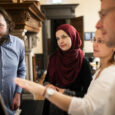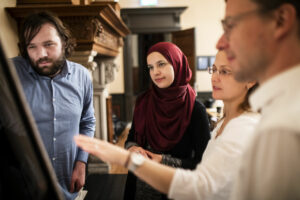Women in economics
Why is this article in English?
This article is part of our English publication ‘Women in Economics’. This dossier is in English because English is the main language of the economics and business faculties in the Netherlands, so an ESB dossier about the people who work there should be in English.
The number of female academic staff members at Dutch universities is among the lowest in Europe (LNVH, 2017) and all parties involved agree that the progress to increase this number is far too little. So we need action! Where ever the Netherlands Organisation for Scientific Research (NWO) actually employs researchers, we take action to increase the female academic staff. At NWO’s research institutes, the WISE programme offers talented female scientists tenure track positions. Also, for job application committees, we should use clear guidelines and focused evaluation formats so as to prevent gender bias and advance equal opportunities.
However, in its primary role – that of a research-funding organization – NWO cannot implement HRM and employment policies, as the universities are responsible for these. Yet what we can do is to offer equal inclusive opportunities to all research-project applicants. In doing so, NWO can ensure that its job-offer texts, grant-evaluation criteria and grant-evaluation processes are not prohibitive or obtrusive to female scientists.
Our main focus here is the gender bias vis-à-vis female applicants, to which both male and female scientists are prone. In economics, an ingrained aversion to ‘race attitudes’ predicts trustworthiness as to judgement and ‘economic trust decisions’ (Stanley et al., 2011). And male as well as female scientists may show such an implicit bias in favour of male applicants. In a recent pilot, NWO offered reviewers and committee members a training in the Veni selection procedures. Due to this, the success rates of female applicants improved to levels similar to those of male applicants and in comparison to those in the control group (paper in preparation). In the near future, NWO will be offering this training to the members of all of its evaluation panels. NWO also requires that at least forty percent of its members on boards, committees and evaluation panels are female.
In the past, NWO had already introduced several measures to encourage both the influx and promotion of female talent at Dutch universities. Aspasia is an example of a successful programme to accelerate female scientists’ careers. To empower female researchers, NWO is now organizing the Pump your Career conference in collaboration with LNVH (a female professor network), an event that focuses on talent and career development for women in science.
Another measure introduced by NWO is the so-called ‘extension rule’ in the NWO talent programme that aims to provide equal career opportunities for scientists with children. This measure extends by eighteen months the limited time ranges for the Veni, Vidi and Vici applications for biological mothers, and for the other parent by six months (for every child). This extension rule enables both parents to devote significantly more time to their scientific careers while raising their children, and before they apply for the talent programme.
Will all of these measures suffice to reach an equal gender balance? We don’t know. It will certainly take time. Still, NWO will constantly scrutinize the effects of its measures to asses if and how they have contributed to a greater participation of talented women in science.
References
LNVH (2017) Monitor vrouwelijke hoogleraren 2017. Available at www.lnvh.nl.
D.A. Stanley, P. Sokol-Hessner, M.R. Banaji and E.A. Phelps (2011) Implicit race attitudes predict trustworthiness judgments and economic trust decisions. Proceedings of the National Academy of Sciences of the United States of America, 108(19), 7710–7715.
Auteurs
Categorieën
